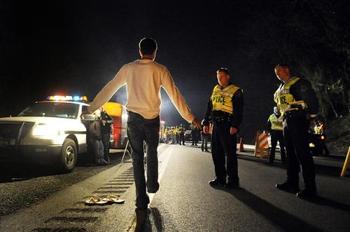
 Texans love their guns and many folks in Texas are excited about the new “Open Carry” laws that were passed this year. Some people imagine a wild west where handguns are worn on the hips of everyone in town. Other are terrified that gun-related incidents will increase. Well, the new open carry laws do not come without their rules.
Texans love their guns and many folks in Texas are excited about the new “Open Carry” laws that were passed this year. Some people imagine a wild west where handguns are worn on the hips of everyone in town. Other are terrified that gun-related incidents will increase. Well, the new open carry laws do not come without their rules.
With the passage of House Bill 910, beginning January 1, 2016, Texans in possession of a concealed carry license (CHL) will be allowed to openly carry a holstered handgun. While “open carry” sounds simple enough, there is much more to it. This article explains some of the rules that Texans need to know if they plan to openly carry a handgun in 2016.
Who is eligible to openly carry a handgun?
Only CHL holders may open carry. Subchapter H of Chapter 411 of the Texas Government Code sets out the basic requirements for a person to be eligible to apply for a handgun license and openly carry a firearm.
To open carry in Texas, a person MUST:
1) Be a legal resident of the State of Texas for the preceding six months before applying for his or her handgun license;
2) Be at least 21 years of age*;
3) Have never been convicted of a felony;
4) Not be charged with the commission of:
• Class A or B Misdemeanor or equivalent offense
• the offense of Disorderly Conduct or equivalent; or
• a felony offense;
5) Not be a fugitive from justice for a felony, Class A or B Misdemeanor or equivalent offense;
6) Not be a chemically dependent person;
7) Not be incapable of exercising sound judgment with respect to the proper use and storage of a handgun;
8) Have not, in the prior five years before applying, been convicted of a Class A or B Misdemeanor or equivalent offense or of the offense of Disorderly Conduct or equivalent offense;
9) Be fully qualified under applicable federal and state law to purchase a handgun;
10) Have not been finally determined to be delinquent in making child support payments or collected by the attorney general;
11) Have not been finally determined to be delinquent in the payment of taxes or other money collected by the State;
12) Not be currently restricted under a court protective order or subject to a restraining order affecting the spousal relationship, other than a restraining order solely affecting property interests;
13) Have not, in the 10 years preceding the date of application, been adjudicated as having engaged in delinquent conduct violating a penal law of the grade of felony; or
14) Have not made any material misrepresentation, or failed to disclose any material fact, in an application submitted pursuant to Section 411.174. (Perjury).
*The age restriction is lowered down to 18 for honorably discharged military veterans who meet all other qualifications.
What types of firearms can be openly carried in Texas?
Currently, under Texas Penal Code Section 46.03, a person cannot carry, either openly or by concealment, a handgun unless that person is on the person’s own premise or inside of a motor vehicle that is owned or under the person’s control (the weapon must still be concealed if carried in a vehicle under 46.03 (a-1)). There is no language in Texas Penal Code 46.03 regarding firearms other than handguns. Therefore, there are no laws prohibiting openly carrying rifles and shotguns (subject to the “where” restrictions to be addressed below). The exception to Texas Penal Code 46.03 is that the provision doesn’t apply to those in possession of a license issued under Subchapter H, Chapter 411 of the Texas Government Code.
In addition to carrying a concealed handgun under Subchapter H, the new House Bill 910 now grants the opportunity for Texans in possession of a concealed carry to openly carry a holstered “handgun.” A “handgun” is defined by Texas Penal Code 46.01 (5) as “any firearm that is designed, made or adapted to be fired by one hand.” Shotguns can be openly carried now in addition to holstered handguns as long as a person is in possession of a license granted under Subchapter H, Chapter 411 of the Texas Government Code.
How can handguns be openly carried?
Use a holster. Under Texas Penal Code 46.15(b) (6), a person carrying a valid CHL may carry a handgun either in a concealed manner or in a shoulder or belt holster. Under these new provisions, if the handgun is carried any other way, a person would be unlawfully carrying the handgun.
Where can handguns be openly carried?
In general, even if a person possesses a CHL, Texas Penal Code 46.03 strictly prohibits the carrying of a handgun or firearm from the following places:
1) School or educational institutions;
2) An election site during regular or early voting;
3) Government or court offices;
4) At a racetrack;
5) Airports (in the restricted section); or
6) Within 1,000 feet of premises of an execution site on the day of an execution.
In addition to the locations listed above, Texas Penal Code 30.06 prohibits individuals, and creates a criminal offense of trespass, for those who hold a license to carry a handgun when notified that their presence on the property with a handgun is expressly forbidden. To provide notice, a property owner must display written notice on the property that specifically complies with the notice requirements of Texas Penal Code 30.06.
With the new Open Carry law, those that wish to prohibit others from carrying a handgun on their premises, must also post a notice in accordance with section 30.07 of the Texas Penal Code. This notice is in addition to the 30.06 sign.
Conclusion
The term “open carry” has been loosely thrown around as new legislation has been debated and ultimately passed regarding openly carrying handguns. It is important to remember that “open carry” isn’t a free-for-all regarding handguns. “Open Carry” is still highly regulated and a person considering openly carrying a handgun should be familiar with all of these new laws and regulations, so that they do not end up needing our services.
Luke Williams is a criminal defense attorney with Barnett Howard & Williams PLLC in Fort Worth, Texas.
Barnett Howard & Williams PLLC
500 Main Street, Suite 610
Fort Worth, Texas 76102
bhwlawfirm-staging.kgencec7-liquidwebsites.com


 Texas has more military veterans than any other state. In the wake of the recent wars in Iraq and Afghanistan, many have difficulty transitioning from military service to civilian life. Some veterans suffer from PTSD or Traumatic Brain Injuries and others fall into addiction. Plagued by these ailments, some Texas veterans find themselves in the criminal justice system.
Texas has more military veterans than any other state. In the wake of the recent wars in Iraq and Afghanistan, many have difficulty transitioning from military service to civilian life. Some veterans suffer from PTSD or Traumatic Brain Injuries and others fall into addiction. Plagued by these ailments, some Texas veterans find themselves in the criminal justice system.
 DWI Update: Some clients want to see their DWI video. Some don’t. Some want to take it home and show their friends and some want to dig a deep hole and bury it away forever. Since the passing of the Michael Morton act, regardless of their clients’ wishes, criminal defense lawyers could not provide a copy of the DWI video without first obtaining a court order or prosecutor permission. This all changes on 9/1/15.
DWI Update: Some clients want to see their DWI video. Some don’t. Some want to take it home and show their friends and some want to dig a deep hole and bury it away forever. Since the passing of the Michael Morton act, regardless of their clients’ wishes, criminal defense lawyers could not provide a copy of the DWI video without first obtaining a court order or prosecutor permission. This all changes on 9/1/15.
 As the prices of gas and groceries rise, so must the theft laws in Texas. With
As the prices of gas and groceries rise, so must the theft laws in Texas. With 
 Years ago, I was employed as an assistant district attorney in a DA’s office out in West Texas. From time to time, I would oversee the grand jury and the presentation of felony cases for indictment. At the first of every month, the county would summon potential jurors from a random selection process to serve on the grand jury. The first fourteen (twelve to serve as grand jurors and two as alternates) who were not disqualified by statute were seated on the grand jury.
Years ago, I was employed as an assistant district attorney in a DA’s office out in West Texas. From time to time, I would oversee the grand jury and the presentation of felony cases for indictment. At the first of every month, the county would summon potential jurors from a random selection process to serve on the grand jury. The first fourteen (twelve to serve as grand jurors and two as alternates) who were not disqualified by statute were seated on the grand jury.
 Below is a summary of the most recent Texas legislative updates 2013 as they relates to Criminal Law:
Below is a summary of the most recent Texas legislative updates 2013 as they relates to Criminal Law:





